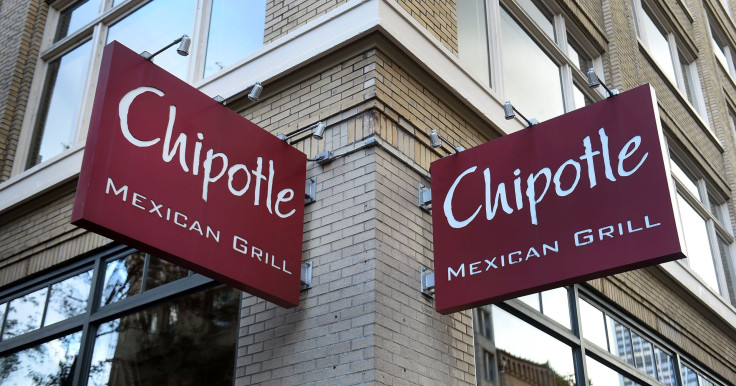Chipotle Norovirus Investigation: A Timeline Of Customers Getting Sick

In the latest update to Chipotle Mexican Grill’s ongoing saga dealing with food-borne illness outbreaks, the restaurant chain was subpoenaed by the U.S. attorney’s office for the Central District of California for a criminal investigation. The probe was in connection to an outbreak that occurred in August at a restaurant in Simi Valley, California. For Chipotle, 2015 was a tumultuous year, as many of its customers became sickened by food-borne illnesses.
In July, an E.coli virus sickened five people in Seattle, and the source could not be determined. Following that outbreak, at least 98 customers and 17 employees were sickened at a restaurant in Simi Valley, Aug. 18-19, in a norovirus outbreak that prompted Wednesday's subpoena. After the outbreak, health investigators found a series of code violations, including equipment that was connected directly to the sewer system, dirty restrooms, insects and employees who lacked a required food handler certification.
As 2015 progressed, the food-borne illnesses continued to pile up for the restaurant chain. In August and September, Chipotle was the origin of a salmonella outbreak in Minnesota caused by contaminated tomatoes that sickened roughly 64 people. Mid-October, however, was when Chipotle was really hit hard: An E.coli outbreak spanning nine states sickened 53 people, and at least 153 customers fell ill in December from an unrelated norovirus outbreak after eating at a Chipotle in Boston. Adding to Chipotle's woes, the U.S. Centers for Disease Control and Prevention is currently investigating another potential E. coli outbreak from the restaurant’s locations in five other states that occurred in November.
“In Chipotle’s case, there are a lot of answers that need to be found,” Darin Detwiler, who works at STOP Foodborne Illness and is also an adjunct professor at Northeastern University in Boston, told International Business Times in November. “When you have three outbreaks in the same restaurant, you can’t be reactive, you have to be proactive. I work with many companies that are proactive, but employee training at restaurants is paramount.”
© Copyright IBTimes 2025. All rights reserved.






















